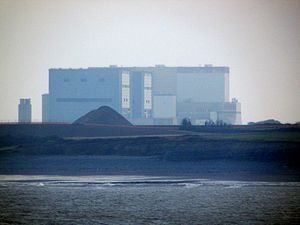By Philip Crowe
 The iconic photo of President Xi Jinping sipping a pint of ale in then-Prime Minister David Cameron’s local pub (subsequently itself acquired by Chinese investors) seems like it was taken a lifetime ago. In the interim, the U.K. has endured one referendum, one messy divorce from the EU, two general elections, and two new prime ministers, compared with Xi’s constant position as the “core” of China’s leadership.
The iconic photo of President Xi Jinping sipping a pint of ale in then-Prime Minister David Cameron’s local pub (subsequently itself acquired by Chinese investors) seems like it was taken a lifetime ago. In the interim, the U.K. has endured one referendum, one messy divorce from the EU, two general elections, and two new prime ministers, compared with Xi’s constant position as the “core” of China’s leadership.
The photo was taken just five years ago, in 2015. At the time, Xi’s visit reflected a new era for U.K.-China relations, affectionately dubbed the “golden era.” The U.K. welcomed Chinese investment into many aspects of its public and private sectors, from football clubs to film and from education to energy. Today, Chinese investment of any kind is subject to increased scrutiny and suspicion.
In 2016, Huawei agreed to strategic research partnerships for 5G technology in the U.K. with both Vodafone and BT. Fast forward four years, and Huawei’s involvement in U.K. telecoms infrastructure is set to end given the recent government decision that Huawei, as a high risk vendor subject to recent sanctions imposed by the United States, cannot guarantee the future of U.K. telecoms security. A legislative schedule for the complete removal of Huawei from the U.K. by 2027 will be included in the forthcoming Telecoms Security Bill. This will anger Conservative backbench parliamentarians, who demand that Huawei be gone by 2024.
Huawei’s time in the U.K. is running out, but there is another area of substantial Chinese involvement in U.K. infrastructure that is beginning to attract significant scrutiny: nuclear energy.
The U.K. currently has eight nuclear power plants, but the majority of these plants are due to shut down before 2030 and so replacement projects are being planned. In 2016, approval was granted for the first of these, based at Hinkley Point C in Somerset. Hinkley C is the subject of a partnership between EDF, a French state-owned energy company holding a 66.5 percent stake, and China General Nuclear (CGN), a Chinese state-owned energy company owning 33.5 percent. Hinkley alone is expected to meet 7 percent of the U.K.’s energy demand upon completion and deliver energy for 60 years. Sizewell C, in which CGN holds a 20 percent share with EDF holding 80 percent, has advanced to the next stage of the planning process. Finally, the proposed Bradwell B station in Essex is a reverse of the Hinkley structure, with CGN owning 66.5 percent compared to the 33.5 percent of EDF. According to CGN, Bradwell B offers them the opportunity to build the first Chinese reactor in a Western, developed country.
The nuclear strategy as it stands is extremely important to both countries. The U.K. adds valuable capacity to their energy infrastructure and works toward meeting their (now legislative) net-zero carbon emissions target. Due to the U.K.’s internationally acknowledged standards of regulation, a successful nuclear project for China in the U.K. would cement Beijing’s credibility as an energy infrastructure provider to the West. It would also provide a serious boost for one of China’s emerging industries.
But recent events, both global and domestic, have now overtaken what was once envisaged as a world leading future business relationship. With China beginning to expand regional influence, the U.K. has taken steps to challenge this, be it offering visas to Hong Kong migrants or reports that the U.K. will send an aircraft carrier to the South China Sea. Domestically, the revolt against Huawei was largely led from the government’s own back benches. Many now have nuclear policy in their sights, with one expert referring to the nuclear relationship as a “ticking time bomb.” Proposals are being put forward to limit Chinese involvement in nuclear and other critical national infrastructure to a share of 10-15 percent, to mitigate the risks of Chinese government interference.
China has promised “necessary measures” to respond to the U.K. decision. In what could be seen as a veiled jab at the U.K., Beijing has recommitted to its pursuit of liberalizing markets in a recent letter to global business leaders, requesting that they “uphold the concept of win-win and joint development.” Notwithstanding backbench pressure to re-evaluate Chinese involvement in the U.K. nuclear sector, this age of “wolf warrior diplomacy” indicates that the U.K. will also have to consider the risk of China retaliating by pulling out of nuclear projects. For Hinkley and Sizewell, this would require the government to find an investor at short-notice or take a stake themselves, and it would jeopardize Bradwell B entirely. With Hitachi already having suspended a nuclear plant at Wylfa due to a spiraling budget, the falling costs of renewables, and the importance of guaranteeing jobs and the future energy security of the country, the government has a careful balancing act ahead.
Philip Crowe holds a master’s in international law from the London School of Economics and previously researched energy policy in the House of Commons.
No comments:
Post a Comment